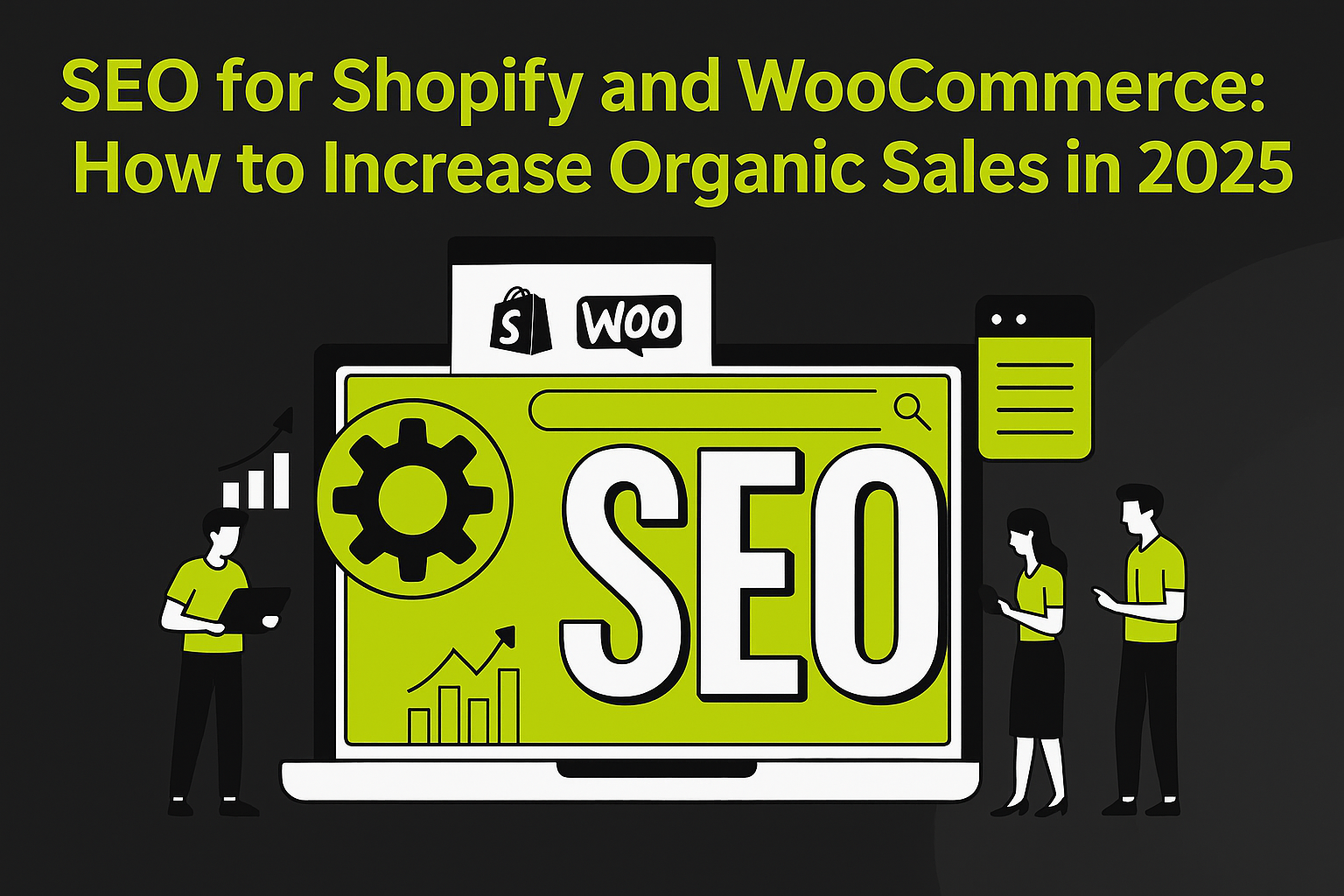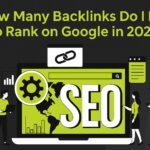
Are you struggling to get more sales from your Shopify or WooCommerce store despite having great products? You’re not alone—and the solution might just lie in how well you’re using SEO. With search engine algorithms constantly evolving, 2025 is shaping up to be a pivotal year for eCommerce SEO.
Whether you run your store on Shopify or WooCommerce, mastering SEO can unlock consistent, long-term traffic and conversions without spending a dime on ads. In this blog, we’ll walk you through the top strategies to boost organic sales, with insights from SEO expert Shiwali Ratan Mishra.
Why SEO Matters More Than Ever in 2025
With increasing ad costs and competition, organic visibility is now one of the most cost-effective ways to grow your eCommerce business. In 2025, Google’s algorithms have become even smarter, prioritizing user experience, content quality, and technical performance. If you’re not optimizing your Shopify or WooCommerce store for search engines, you’re missing out on a major source of revenue.
SEO for Shopify: Tailored Strategies for Growth
Shopify is known for its user-friendly platform, but SEO requires deliberate actions. Here’s how to optimize your Shopify store:
1. Optimize Page Titles and Meta Descriptions
Use target keywords like “best eco-friendly shoes” or “organic skincare products” in your titles and descriptions. Keep them engaging and concise.
2. Improve Site Structure
A clean and logical site architecture helps Google crawl and index your store easily. Use descriptive URLs like yourstore.com/mens-leather-shoes rather than yourstore.com/product123.
3. Use Shopify Apps Wisely
Leverage apps like Plug In SEO and SEO Manager to identify technical issues and get actionable insights.
4. Focus on Mobile Optimization
Shopify stores must be fast and responsive on mobile devices. Use lightweight themes and compress images to improve loading speed.
5. Create Content That Converts
Incorporate a blog section on your Shopify store. Share product guides, how-to posts, and listicles using long-tail keywords like “how to choose running shoes for flat feet.”
WooCommerce SEO: Best Practices for WordPress Stores
WooCommerce gives you more flexibility, but that means SEO success relies heavily on how you use plugins and configure your site.
1. Use an SEO Plugin
Install tools like Yoast SEO or Rank Math to optimize titles, descriptions, and schema markup for every product page.
2. Optimize Product Descriptions
Avoid using generic manufacturer descriptions. Instead, write unique, keyword-rich content for every product.
3. Secure Fast Loading Speeds
Use caching plugins like W3 Total Cache and optimize images to keep your WooCommerce store fast.
4. Enable Breadcrumb Navigation
Breadcrumbs enhance user experience and improve internal linking—key ranking factors for Google.
5. Build High-Quality Backlinks
Start a guest posting campaign or reach out to industry bloggers to earn authoritative backlinks to your product or category pages.
Universal SEO Strategies for Both Platforms
Regardless of whether you use Shopify or WooCommerce, these universal tips can elevate your eCommerce SEO game in 2025:
1. Focus on E-E-A-T (Experience, Expertise, Authoritativeness, and Trust)
Demonstrate your product knowledge, user testimonials, and expert input to establish trust.
2. Optimize for Voice Search
More people are using voice assistants to shop. Target conversational long-tail keywords like “what’s the best backpack for travel in 2025?”
3. Structured Data and Schema Markup
Use schema for products, reviews, and FAQs to enhance how your listings appear in Google search.
4. Build Internal
Strategically link blog posts to product pages and category pages to distribute SEO value across your site.
How to Measure and Improve Your SEO Performance
Optimizing your Shopify or WooCommerce store for SEO is just the beginning. To truly grow your organic sales, you need to track your progress and make continuous improvements. That’s where performance measurement comes in.
Here’s how you can do it effectively:
Use the Right Tools
- Google Search Console
This free tool from Google helps you understand how your website performs in search results. You can:
- See which keywords your pages are ranking for.
- Check if your product pages are properly indexed.
- Identify and fix issues like mobile usability errors or broken links.
- Track changes in your search visibility over time.
- Google Analytics 4 (GA4)
GA4 gives you deep insights into user behavior—how visitors interact with your website. You can:
- See where your traffic is coming from (organic search, social media, etc.).
- Track conversion paths (how users move from landing pages to purchases).
- Measure bounce rate and time spent on each page.
- Identify top-performing product pages or blog posts.
- Ahrefs / SEMrush
These are premium SEO tools used by professionals. They help you:
- Analyze your site’s health with regular SEO audits.
- Monitor your keyword rankings over time.
- Discover which websites are linking to yours (backlinks).
- Research your competitors’ SEO strategies for ideas and inspiration.
Set Clear Monthly SEO KPIs
KPIs (Key Performance Indicators) are measurable goals that keep your SEO strategy on track. Here are some examples:
- Increase in Organic Traffic by 15%
Track the total number of visitors coming from search engines. A steady month-over-month increase shows your visibility is improving. - Rank on Page 1 for Top 5 Target Keywords
Focus on specific keywords that are most relevant to your products or services. Ranking on Page 1 (especially in the top 3 positions) will significantly boost clicks and conversions. - Lower Bounce Rate and Improve Dwell Time
A lower bounce rate means users are finding your content useful and sticking around. Improving dwell time (how long visitors stay on your site) signals quality content to search engines. - Increase in Conversions from Organic Sources
This is the most important metric—how many users who find you via search actually make a purchase, sign up, or complete a desired action.
Final Thoughts
The future of eCommerce lies in organic search. With the right SEO strategies tailored for your platform—Shopify or WooCommerce—you can attract high-quality traffic, increase conversions, and reduce your dependency on paid ads.
2025 is a year of smarter algorithms, higher competition, and more informed customers. Start investing in SEO now to future-proof your business. And if you want expert guidance to help you implement these strategies, don’t hesitate to reach out to industry SEO Expert Shiwali Ratan Mishra, whose proven track record can give your store the visibility it deserves.


